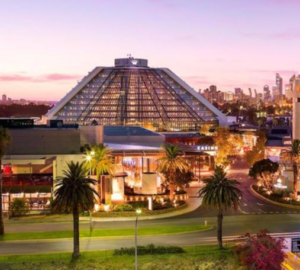Atlantic City has a history intricately woven with the threads of organized crime, the Prohibition era, and the subsequent rise of the Italian Mafia. In this post, we will delve into the city’s fascinating past, uncovering the tales of bootlegging, mob figures, and the transformative moments that shaped Atlantic City. A key milestone in this evolution was of course the legalization of gambling — Resorts Casino Hotel was the first casino in New Jersey that legally opened, marking a turning point in the city’s trajectory and setting the stage for a new era.
The History of the Mob in Atlantic City
In the aftermath of the Great War, Italian immigrants sought refuge in the growing cities of the United States, with Atlantic City becoming a focal point. Faced with gang violence, these immigrants established American mafias, supported by their counterparts in Italy and France. The city’s landscape was soon dominated by criminal enterprises, with a significant number of Italian immigrants affiliated with organized crime groups.
Whiskey, Wine, and Women
One of them was Nucky Johnson, a political powerhouse and influential figure in Atlantic City during the Prohibition era. He earned widespread favor by allowing Atlantic City establishments to serve alcohol on Sundays, a practice outlawed in many American states, including New Jersey. This strategic move not only defied norms but also led to a significant surge in tourism, establishing Johnson’s influence.
His unapologetic stance on providing “whiskey, wine, women, song, and slot machines” reflected a profitable response to the high demand for these indulgences. Between 1926 and 1933, nearly 40% of all illegal alcohol entering the United States found its way to or near Atlantic City, amplifying the city’s allure.
Al Capone and the Saint Valentine’s Day Massacre
Nucky Johnson’s diplomatic skills took center stage in transforming Atlantic City from a mere adult playground into a significant player in the intricate world of organized crime. In February 1929, Al Capone, seeking control of Chicago’s organized crime scene, orchestrated the infamous St Valentine’s Day Massacre, where seven soldiers of the North Side Mob were ruthlessly killed. The massacre, emblematic of the dark side of Prohibition, highlighted the ruthless pursuit of power and greed among mob bosses during the so-called “Beer Wars.”
The Rise of La Cosa Nostra
Supported by Nucky Johnson’s Organization, a Republican political machine, the Italian Mafia gained a stronghold in South Jersey. The bootlegging business thrived, forging alliances between Atlantic City and well-known bootleggers like Arnold Rothstein, Charlie Luciano, Johnny Torrio, and Benny Siegel. This collaboration laid the groundwork for Atlantic City’s enduring association with organized crime. The term “La Cosa Nostra,” meaning “this thing of ours,” emerged, distinguishing Italian-American organized crime in the U.S. It reflected Capone’s vision of treating the bootlegging empire as a business for peaceful and profitable operations.
The Fall of the Empire
In 1933, the cancellation of Prohibition and the subsequent passage of the Twenty-First Amendment marked a turning point for Atlantic City. President Franklin D. Roosevelt’s actions not only dented the machinations of organized crime but also had a lasting impact on Nucky Johnson’s boardwalk empire. The Great Depression further diminished the city’s allure, with economic hardships diverting attention from vice-driven pursuits.
Nucky Johnson’s once-untouchable status weakened, leading to federal operations in the area, culminating in a shootout with FBI agents targeting “Public Enemy Number One” Alvin Karpis. As Las Vegas emerged as the new hub for gambling and vice, Atlantic City declined. Johnson’s legal troubles continued, resulting in a 10-year prison sentence in 1941, serving four years before his death in 1968. By then, Atlantic City was marred by crime, poverty, and corruption, a far cry from its glamorous past.
First Casino in Atlantic City
Amidst Atlantic City’s decline, a significant shift occurred in 1976 with the legalization of gambling. The city, grappling with economic challenges and the fading echoes of its glamorous past, saw the introduction of a new era as Resorts Casino Hotel became the first legal casino in New Jersey. This transformative move, aimed at revitalizing the local economy, bore connections to the city’s historical entanglement with organized crime. The transition from the shadows of Nucky Johnson’s empire to the era of legalized gambling marked a pivotal moment in Atlantic City’s narrative, presenting both opportunities for revival and new challenges in navigating its complex history.
- The Best Slot Games For Low-Budget Play - December 14, 2024
- From Mob Mentality to Digital Thrills - December 10, 2024
- How To Choose The Best Insurance For Barbers? - December 4, 2024








